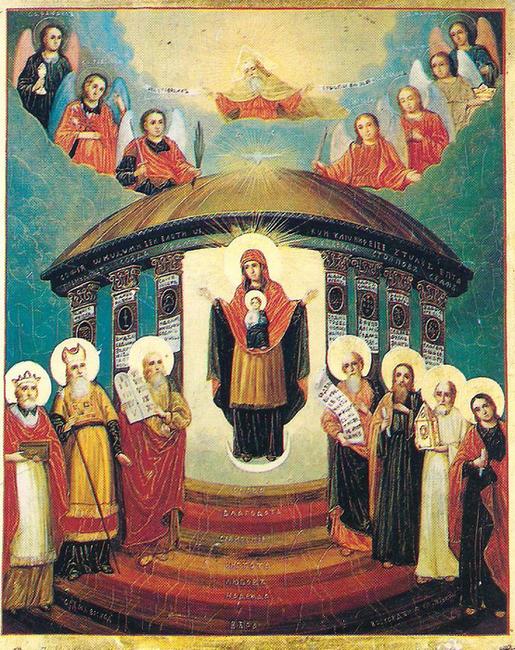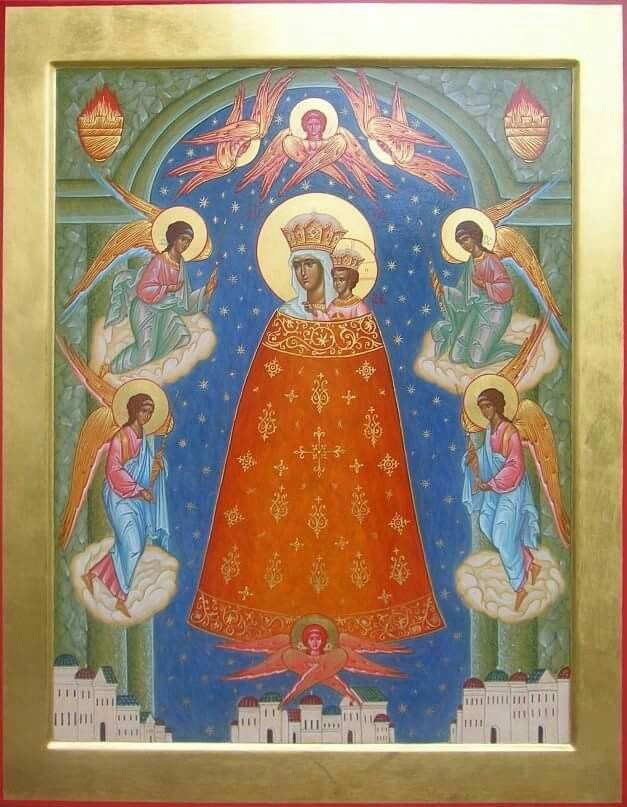The
Gospel according to the Hebrews was written in the 1st century to the mid-second century. It was a non-canonical text that seems to me to have been both non-gnostic and written after the synoptic gospels. It was respected by various Church fathers, and was comparable in status to other early non-canonical gospel texts like the
Infancy Gospel of James and
the Apocalypse of Peter. Only quotations of it survive in the Church Fathers and Church writers, the last being from the
Leabhar Breac (written in 1408-1411,
An Leabhar Breac - Wikipedia). It was preserved apparently by Jewish Christians or by the Nazarene sect (Torah Observant Jewish Christians).
Ben Smith collected all the quotations from it and put them on his website here:
The Jewish-Christian gospels.
For the sake of arguing the topic, the Gospel According to the Hebrews is certainly not very strong evidence that Orthodoxy considers the Spirit to be Christ's mother. It was just a factor in Jerome's own viewpoint on that question.
Origen in his
Commentary on John 2:6 basically said that
IF YOU DO ACCEPT
THE GOSPEL ACCORDING TO THE HEBREWS, and are confused about why it says that the Holy Spirit is Christ's mother, then here is how it can say that She is her... And Origen's argument was rather semantic or allegorical, ie. Christ says in the Biblical gospel that whoever does His father's will is His mother or sibling, hence, Origen explains, the Holy Spirit is Christ's "mother".
Regarding your statement "since the Spirit empowered the conception in her, to say the Spirit is Mother also is some weird, lesbian relationship", in his
Commentary on Isaiah 11, together with his Commentary on Micah 7:6,
Jerome seems to imply that the Holy Spirit is not Jesus' mother in a literal feminine sense, because "in divinity there is no gender", but rather he seems to apply this in the sense that the Holy Spirit caused Christ's incarnation, which produced or caused His human form. There, in his
Commentary on Isaiah 11, Jerome writes:
He explains further his views in his
Commentary on Micah 7:6. Micah 7:6 goes:
"For the son dishonoureth the father, the daughter riseth up against her mother,
the daughter in law against her mother in law; a man's enemies are the men of his own house." In his commentary, Jerome considers what this means about dishonoring the mother-in-law:


